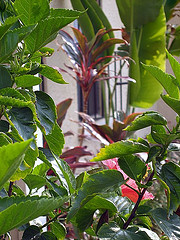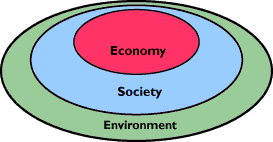|
Enticements to Sustainability and Environmental Learning and ActionThere are many enticements that attract adults to environmental learning and action. Many of these apply to our During my literature review for a master's degree in environmental adult education, I discovered many enticements (motivators, incentives, benefits, enhancers) that inspire people to learn about and act on environmental and other sustainability issues. Like barriers, enticements can be collective (cultural), personal (psycho-social), or educational. These include actual incentives, already in place, as well as potential motivators, not yet implemented. Enticements also include the removal of barriers [59 - see the References page] as well as invitations to learning and action [21]. You can click on these links to learn more about: By confronting us with irreducible mysteries that stretch our daily vision to include infinity, nature opens an inviting and guiding path toward a spiritual life. — Thomas More The Mother of All EnticementsMy research took place early in the 21st century (2000-2003), just as the general public was really waking up to the terrifying threat of global climate change. I would wager that since then, the enticements I uncovered have weakened while our barriers to action have been growing in strength and number. We need to wake up to Nature! We need to start seeing humanity as a living species, as an animal that depends on a healthy and habitable planet. We need to reconnect to the instincts that will drive us to protect our progeny and safeguard the future for our children and grandchildren. We need to rekindle that inherent love we felt for all things natural when we were children — our inborn biophilia or love of life.
(Re)creating this worldview — even just acknowledging that there might be something important in it to "try on" — will open us up to all the other enticements to sustainability and environmental learning and action. This can start simply by stopping to notice. Stop to listen as a bird sings. Stop to watch a beetle, spider or worm. Stop to smell some flowers. Why have we got the time to admire a neighbour's new car or tractor, but we're too busy to dip into life, to notice the rest of Nature all around us — whether we live in the countryside or a city, or somewhere in between? If we start allowing the natural world to feed our souls (as well as our bellies), we'll become less dependent on all the human-made trappings of life that sap our energy and our money. And so, turn away from this computer screen for a moment. Look out the window. (If you have no window, close your eyes and imagine ... or better yet, go outside for a few moments.) If all you see is concrete and glass, look up. Say hello to the sun, for without it, life would not be possible on Earth. If the sun isn't there right now, greet the clouds, for they water the Earth and all life on it. Be thankful for that dome we call the atmosphere, for without the air it provides, we couldn't survive for more than three or four minutes.

Is there anything green outside your window? How many different greens do you see? (Can you tell I'm writing in springtime? If it's autumn or harvest time for you, how many different colours do you see?) Say a prayer of thanks to all the green, for it is the starting point of the circle of life. Without green plants, the sun would warm us but not feed us. What do you hear? Birdsong? Wind in the leaves? If it's traffic or industrial noise, then listen to your own breathing. Quietening our minds for a while allows an escape from all that jabbering that keeps us so firmly cemented in the human-only world. If you can open your window, do so. Do you have a favourite sense or sensory experience? Mine is the sense of touch — I love the feel of a breeze across my cheek, especially late at night or early in the morning, while lying in bed. Those are precious moments that I treasure. (Remember being kissed goodnight by your mother?) Did the breeze bring Nature's perfumes to you? Children love the activity called Nature's Perfumes. Fill any kind of cup or container with little bits of grass and sticks, plentiful wild flowers and dirt. Mix, sniff and share! Some are yucky (kids love that "gross factor"!) but many are beautiful scents. And now, have a snack. Anything at all. (Something juicy is fun.) While you're eating it, picture it as a gift from the Earth. Picture all the ways the Earth created it for you: soil, oxygen, sunshine, rain — earth, air, fire and water (possibly processed with machines built with mineral ores from beneath the Earth's crust, powered by energy sources created by millions of years of life). Make the connection between everything you eat and the Earth. Then, if you feel it, whisper thank you. |


